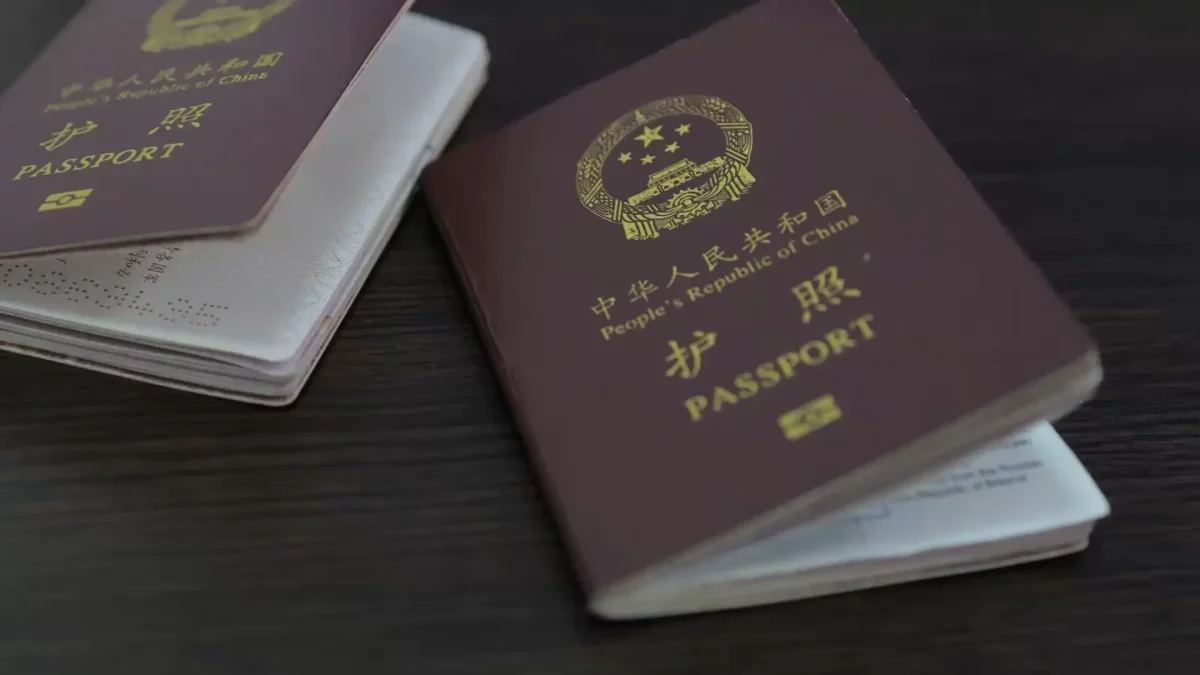
MicroB
Advanced Member-
Posts
1,290 -
Joined
-
Last visited
Content Type
Events
Forums
Downloads
Quizzes
Gallery
Blogs
Everything posted by MicroB
-
Shock in Donetsk: Chinese Fighters Caught Battling for Russia!
MicroB replied to CharlieH's topic in The War in Ukraine
deleted -
Shock in Donetsk: Chinese Fighters Caught Battling for Russia!
MicroB replied to CharlieH's topic in The War in Ukraine
Christ, if they picked up a British soldier, at any point in history, you would hear a stunning range of accents and patois, and varying commands of English. Wellington called them the Scum of the Earth, and was proud of them, in response to a French officer pointing out the educational differences between British and French troops. As is true in many wars, mercenaries are attracted by on the one hand, wanting to fight the good fight (George Orwell in Spain) and those just in for the money ("Colonel" Callan in Angola). The latter often attracts individuals from the more deprived parts of society, with or without military experience. I'm sure the PLA, like all other armies, includes recruits who were otherwise ne'er do wells. Not all join for King/President/Flag/Country. So it make sense that a couple of Chinese nationals rocking up in Ukraine are a few bottles short of a 6-pack. I would say the same for some of the Brits going there; if I was being generous, some seem to be looking for adventure after a mediocre life. There are exceptions of course. -
He missed an obvious opportunity. EO for the US to adopt the Imperial Gallon, resulting in 25% more water at shower time, and better miles per gallon. Also helps Elon's sums about getting to Mars.
-
Shock in Donetsk: Chinese Fighters Caught Battling for Russia!
MicroB replied to CharlieH's topic in The War in Ukraine
Also some people have convenient back stories. -
Shock in Donetsk: Chinese Fighters Caught Battling for Russia!
MicroB replied to CharlieH's topic in The War in Ukraine
They have Chinese passports. But its now new news. There were former PLA members fighting in 2024 and 2023. https://nationalsecuritynews.com/2024/06/chinese-mercenaries-are-fighting-for-russia-in-ukraine/ Chinese national have fought for both sides. -
UK Fails to Act on US Offer to Extradite Andrew Tate
MicroB replied to Social Media's topic in World News
A rare display of mostly unity, in that the Tate brothers are utter depraved scumbags, hopefully being bled dry through being holed up in an Arab hotel. Extradition requests are prepared by the Crown Prosecution Service. Its a matter of UK Law that the decision to request an extradition come from the Prosecuting Authority; the CPS. The CPS prepares the request, then it goes to a jubge. Only then does it go to the Home Secretary, who basically has to determine if the request is lawful. Bedfordshire Police already has a Europe wide arrest warrant for alleged offences committed in 2015. I suppose the CPS is also thinking about why the case collapsed in Romania. No doubt there has been extensive exchange of notes between prosecuting authorities. He's not going anywhere in Dubai. Justice will come. -
Poll -- Who will cave first in the momentous China-USA trade war?
MicroB replied to Jingthing's topic in Political Soapbox
And went on to facilitate much worse. -
Poll -- Who will cave first in the momentous China-USA trade war?
MicroB replied to Jingthing's topic in Political Soapbox
-
Updates and events in the War in Ukraine 2025
MicroB replied to cdnvic's topic in The War in Ukraine
Farmers don't get shot at. The Russians have alreadyn been using these Chinese golf carts elsewhere. What this is is the Ulan; a rebodied 1977 Lada Niva. Nivas of course have their fans among the Tankie and Gripped crowd, but they were never "efficient". The 1.6 4-cylinder model, as I recall, managed a miserable 20mpg on road tyres. Probably mid-15s in the origami folding form. Its another signal. Along with the log armour, its a signal of a former superpower regressing. They've taken a surplus 40 year old car platform, and stuck on an easily constructed body made of non-ballistic material. Ukraine started off improvising, scouring Europe for cheap 15-20 year old pickups. Most of those have gone now, replaced by properly armoured vehicles. Ukraine has ben innovating as well, using superior commercial platforms (Ford F-Series and Toyota LC-70), and much more emphasis on providing force protection (not putting your soldiers in death traps like the Russians seem to be). No doubt you wil find these Russian modifications to be impressive Not a new idea, but it looks like it didn't really work 80m years ago either In WW2, Britain had to make crap like this when its back was against the wall, eg the Sten gun, which wasn't great, but met a basic need. Russia is supposed to be winning according to its fants and acolytes. But there are lots of signals suggesting otherwise, eg, Russian troops complaining they are only getting 500mls of water a day -
Two Superpowers fighting to see who can devalue each other's currencies. BBC:
-
No I didn't. I literally made no comment. I responded with quotes and images from various sources, that can be taken out of context, as a response to a claim from a Forum Member that Biden placing his hand on the head of a girl could be seen as inappropriate. In both cases, its about context. Biden is not a paedophile (why are you now using a British spelling??? Ergo, you are not an American, and your whole persona is a construct). The 47th President is not one either, in my view. You called me a paedophile. That is beyond the Pale, and defamatory. You have not apologised nor withdrawn the remark. I want you banned.
-
China has declared in the next 5-10 years or so, it wants Chinese companies to hold about 90% of the domestic market. Its also signaled it doesn't want these companies to be merely fronts for foreign enterprises (JVs) and so in that respect, its giving accelerated approval times for Chinese companies with genuinely innovative solutions (how they define innovative is another thing), which is very similar to the FDA's "De Novo" approval scheme. One of the upshots is that medicine improves for everyone. It might threaten American, German, British, French. Japanese market share, but I'm not sure that is a terrible thing if the result for patients is better healthcare. I think most here can appreciate the philosophical differences between Western medicine (based on studying the dead) and Eastern medicine (studying the living). Chinese hospitals are split between "Western" medicine hospitals, offering treatments and diagnostics much like and hospital in the West, and so-called "Traditional Chinese Medicine" hospitals (their term) which probably should be called Eastern Medicine hospitals, because what they practice isn't necessarily old fashioned nor brackward. I've seen some medtech out of China which genuinely is eye-raising innovative, in ways we would describe as lateral thinking ("why didn't we think of that"). There are a huge number of Chinese medical companies; gargantuan in fact. Which means most are tiny. Yes, there are some big Chinese companies looking to export into Western economies, and competition is good. But most of these companies have zero interest in exports. Many don't have even much interest outside of their province. And curiously, they are not interested in competition in the way we would think of it (ie they don't have competitors, they just have customers, the hospitals). Hospitals tend to become loyal customers, and no one would dare to upset those relationships through discounts, incentives and the suchlike. There are also 3 tiers of hospitals, plus the private ones. Top tier and the private hospitals are full of the latest equipment, doctors trained in the West etc. The bottom tier do not, with increasingly reliance on domestic brands and Eastern medicine. China has quite a strong tradition of health insurance; the Chinese save money, massively. That staeted in Mao's day, when he established schemes, which were contributory, for farm workers and for factory workers, with the farmers, who were always the poorest, getting the better scheme. Back then, it was about farm collectives and factory collectives. So factories built their own hospitals. Those collectives have long gone, and in the modern China, it means a job for a company comes with a strong health insurance scheme, with farm workers paying into a state scheme. In the West, for medicines and medical devices, we have a lot of contradictions. The FDA was established in the wake of the first batches of polio vaccine going wrong; basically one of the vaccine manufacturers didn't understand how to make the formaldehyde that inactivated the polio virus, with awful results. The FDA was established so that companies did understand how to make the things they were making. And over the years, rules and regulations grew, with the objective of safeguarding the patient, but not necessarily meaning the patient had access to the best technology, just the safest. Europe regulatons were a bit of a mess, ranging from a precautionary approach in countries like the UK, to zero regulation in Eastern Europe. With the EEC, and later the EU, the UK, France and Germany played a pivotal role in establishing common standards; for Western countries, that was easy, because they all tool a similar approach. In the Common Market, there was emphasis on supporting business. So Directives were developed to establish the standards by which companies could market their products. Getting anyone to buy them was another matter, and member states always had the last word about reimbursement, and conducted their own efficacy studies. In the US, industry pays for the trials, in Europe, governments mostly pay (or did pay). Typically, it was a lot quicker for companies to get things to market in the EU than the US; on average, European patients could access new technologies 7 years before those in the US. That might sound a surprise. But the difference is US approvals essentially includes the technical assessment, allowing the CMS, and therefore the insurance companies, to take faster decisions whether they were going to pay for it or not. In the 1980s, the first cracks started to appear, because the regulatory authorities in the US couldn't keep up. First it was genetic tests; loads of them appeared, and they were taking too much time to approve. So the FDA created the "CLIA waived" status; essentially they trusted a regulated lab to understand the test they were carrying out, so approval could be expedited. 40 years on, labs are now doing next gen sequencing tests that they don't understand; they don't understand the results, and depend on the manufacturer interpreting that for them. Another thing is "substantially equivalent"; a medical device is pretty similar to something alreadhy on the market, and so didn't have to jump through all the hoops. That failed in the case of hernia meshes which has left thousands of women with lifelong chronic pain (to do with scarification around the mesh put in to fix a hernia; everytime they move, it feels like they are being stabbed. Removal requires major surgery, and results in disability). In Europe, Directives over time become Acts. A Directive is essentially a broad set of instructions to a memberstate how to change their legislation, but there is no time frame. An Act is mandatory. But by the time a Directive becomes an Act, everyone is already aligned; going back to the US, France, and Germany; all 3 countries had already developed similar standards, and it was never a bit deal in trade as a result. But with medical regulations, the change from Directive to Act was an opportunity to pug gaps in safety, so there was huge change. Moreover, the new regulations were no longer about the safest healthcare, but now the "most advanced" healthcare. That line is now causing issues, especially with grandfathered products. Anything new must be better, because the regulation says so. As a hospital, are you really going to purchase products that are not as good as the latest ones...... In Europe, the new regulations now include technical assessments, meaning member states can take reimbursement decisions more quickly. So timelines are getting longer, kind of. the 45th President did say he wanted to deregulate the FDA, but didn't get around `to it. In theory, the FDA deregulating, and the EU regulating means standards should get similar, allowing better trading; US products can be more readily purchased in Europe and vice versa, given that approvals are mutually recognised. This is what happens with cars. A car made for the US market isn't all that different from those in Europe; DOT marks are seen as equivalent to E-markes, and the same for Japanese JIS marks. In the current idiom. FDA deregulation is being achieved by sacking them all. This will mean increased approval times; already happening. The FDA response will likely be to simplify what they do, and get to what Europe used to do. Under the old European approach, manufacturer essentially self-regulate through audits they pay for. Insurance companies though aren't going to pay for some shonky device thats had a rubber stamp approval. That deranged individual who murdered the health insurance executive; he had undergone unecessary spinal fusion surgery (because the doctors told the insurers so) that did nothing for him, but cost a lot of money (the insurance companies are now increasingly pushing back against spinal fusion claims). I suspect the constant pain left him lacking mental capacity. So they will develop their own assessment processes, at a cost passed on to the customer (increased rates), or they will view more favourably, products that come with their own technical assessments for scrutiny, from Europe, and from China. As for scientists seeking employment. Consider the modern history of the passport. The modern passport was introduced in WW1, as a means to STOP people leaving the country. Only with a passport, could you leave, so in that way they stopped engineers and scientists switching sides. Now, we think of a Passport as a Right. That can be taken away.
-
Explain yourself. Unless you are poorly enunciating a point, you have just called me a pedophile. A lacki of response I will take as the affirmative.
-
Updates and events in the War in Ukraine 2025
MicroB replied to cdnvic's topic in The War in Ukraine
"Futile attacks" don't seem futile when they at least interupt production of Russia's only domestic source of fiber optic cable. And using SAMs in a surface to surgace mode is the reason the Ukr AF has been dropping JDAMs on Russian forward positions. https://theaviationist.com/2025/02/03/ukraine-new-1000-lb-jdam-er/ Goering made the tactical error of using up his best bomber crews bombing London instead of focusing on military targets (the airfields). The fact that a former super power is having to repurpose defensive weapons in an offensive configuration, and risk losing troops and equipment it can ill replace is a signal certainly. It signals that Russia's retaliatory options are become more limited. It remains curious why the RuAF is still employed in a stand off mode (launching glide bombs from hundreds of KMs away). They surely had the capability at the beginning of Putin's War of Aggression of neutralising Ukrainian air defence very quickly (viz. US campaigns over Iraq), which would then allow the RuAF bomber crews to loiter and attack at will more accurately than they currently are achieving. Rumours are that the RuAF pilots lack flying hours, and there is a high accident rate. -
Updates and events in the War in Ukraine 2025
MicroB replied to cdnvic's topic in The War in Ukraine
Factory before Factory after Russiann pre-war source confirming the Ronald MacDonald colour scheme building on fire is indeed the fiber optic factory https://yandex.eu/maps/org/optikovolokonnyye_sistemy/191115326297/?ll=45.196156%2C54.225054&z=15 The street address is "430006, Саранск, Лодыгина, 13". https://maps.app.goo.gl/YEfpymofCi7h142z6 Factory tour -
Well, the 47th President describing his 16 year old daughter Ivanka: Don’t you think my daughter’s hot? She’s hot, right? Trump: “My daughter is beautiful, Ivanka." Stern: “By the way, your daughter…” Trump: “ - she’s beautiful" Stern: “Can I say this? A piece of ass.” Trump: “Yeah.” When asked if Ivanka appeared inside Playboy magazine It would be really disappointing — not really — but it would depend on what's inside the magazine.......... I don't think Ivanka would do that, although she does have a very nice figure. I've said if Ivanka weren't my daughter, perhaps I'd be dating her." “Isn’t that terrible? How terrible? Is that terrible? Yeah, she's really something, and what a beauty, that one. If I weren't happily married and, ya know, her father . . . https://www.seattletimes.com/nation-world/trumps-lewd-talk-about-daughter-ivanka-in-front-of-white-house-staff-recalled-in-new-book/ “Aides said he talked about Ivanka Trump’s breasts, her backside, and what it might be like to have sex with her, remarks that prompted Kelly to remind the president that Ivanka was his daughter,” writes Miles Taylor, a former chief of staff at the Department of Homeland Security, in his new book, according to Newsweek. If Ivanka weren’t my daughter, perhaps I’d be dating her. Isn’t that terrible? How terrible? Is that terrible?”
-
Or the democratic accountability of parliamentarians who are also cabinet ministers versus unelected appointees.
-
He never knew his German grandad. And his own dad barely knew his deserting father. There may be a level of lingering tribal dislike of Bavaria that was passed down the family to excuse his Pimp grandad. And then there are unexplained questions about his mum; a poor, semi-literate Highlander, without two h'pennies, who found the money to cross the Atlantic not once, but twice, apparently while working as a scrubber. And was suddenly attending parties with New York's up and coming rich classes, where I suspect barely anyone understood her. But maybe her accent didn't matter at those sorts of parties.
-
deleted because I don't care about the defenders of barabarism
-
Same country had to turn to a third world nation for drones that it couldn't design. same country couldn't produce shells, so i9t turn ed to 70 year old North Koerean supplies. During the Cold War, Russia couldn't produce the computers necessary of CAD of submarine propellors. So it smuggled Toshiba units, Remember that? Russia expends considerable effort, and probably paying over the odds, to smuggle in European and Japanese bearings. It wouldn't do so if it could make them. https://united24media.com/war-in-ukraine/russia-defies-sanctions-continues-to-secure-critical-bearings-including-from-eu-manufacturers-5104 Russian Rail is dependant on 3 suppliers for rail wagon cassette bearings: wedish SKF,Timken and Amsted Rail. These 3 firms had established assembly plants in Russia, importing components, with final assembly to Russian specs in Mother Russia. They all left. The Russians have claimed to have adapted, through local manufacture by EPK-Brenko and TEK-KOM. These bearings have about 5 years service life, and the last Western ones were fitted in 2022. The rail system has seen increased uptick is usage by heavy cargo, given the tank refurbishment factories are out in the far east, and all of the Korean munitons are coming in by rail. The frequency of derailments increased first in the fair east, then Caucasus, and now now hitting the Mosco region, indicating indigenous attempts to plug the bearings supply has failed; Russia, as the Soviet Union, with A-Bombs, men in space, could make bearings, but they never were able to make the grade of bearings for rail stock, and the main supplier always used to be Finland. Glasnost enabled access to Western Know-how. But Know-How goes once the Western engineers go home.
-
Updates and events in the War in Ukraine 2025
MicroB replied to cdnvic's topic in The War in Ukraine
How battle field technlogy is evolving. The Russians countered Ukrainian Western-supplied jamming systems by employing fiber-=optic controlled drones, so much so, that the field are awash with fiberoptic cables. But due to Ukrainian drone activity, Russian drone operators are in faxed positions; the Ukrainian drones go for anything that moves. Technology is being employed to trace back the cables to the source Russia has a single factory, at Saransk, making fiber optic cable. At least this is what the manufacturer claimed: https://www.rusfiber.ru/en/about/&ved=2ahUKEwjo58uq8seMAxVgT0EAHVzcG0QQFnoECBoQAQ&usg=AOvVaw24Ak7kfRGweksexcJvBf7o Factory is now up in flames. Oops. https://newsukraine.rbc.ua/news/drones-strike-plant-in-saransk-details-of-1743838476.html -
Updates and events in the War in Ukraine 2025
MicroB replied to cdnvic's topic in The War in Ukraine
Road of death to get 500mls of water to a Russian soldier. 500mls is judged all the water a soldier will need before being liquidated. -
Updates and events in the War in Ukraine 2025
MicroB replied to cdnvic's topic in The War in Ukraine
Ukraine is reporting 50% of its targets are hit by drones. Russian military sources say 75% of their casualties are due to drones. -
Updates and events in the War in Ukraine 2025
MicroB replied to cdnvic's topic in The War in Ukraine
New Russian military truck; 1941 Morros 15CWT, designed by a nation under siege and short of supplies:























